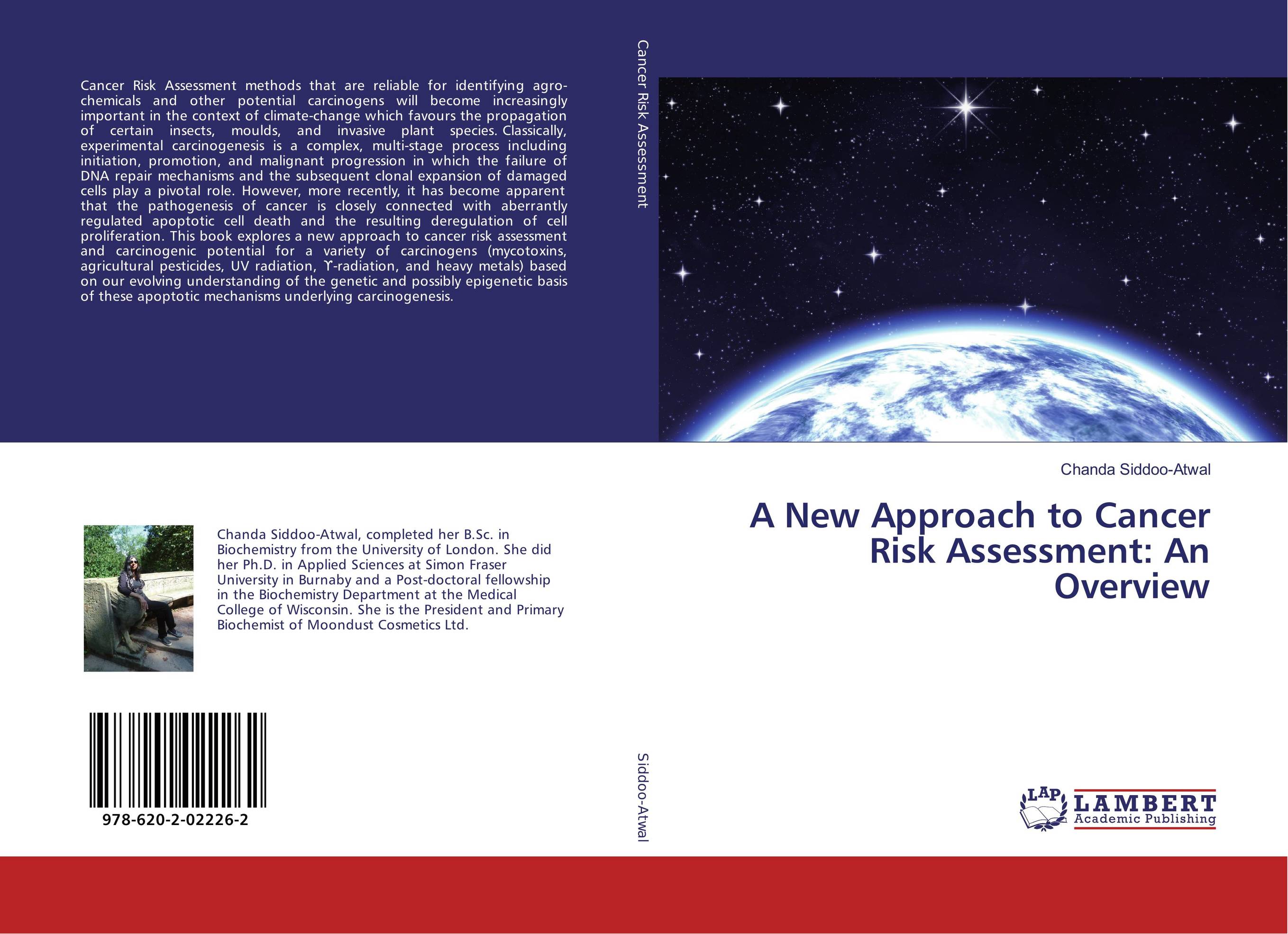| Поиск по каталогу |
|
(строгое соответствие)
|
- Профессиональная
- Научно-популярная
- Художественная
- Публицистика
- Детская
- Искусство
- Хобби, семья, дом
- Спорт
- Путеводители
- Блокноты, тетради, открытки
A New Approach to Cancer Risk Assessment: An Overview.

В наличии
| Местонахождение: Алматы | Состояние экземпляра: новый |

Бумажная
версия
версия
Автор: Chanda Siddoo-Atwal
ISBN: 9786202022262
Год издания: 2017
Формат книги: 60×90/16 (145×215 мм)
Количество страниц: 120
Издательство: LAP LAMBERT Academic Publishing
Цена: 21952 тг
Положить в корзину
Позиции в рубрикаторе
Отрасли знаний:Код товара: 178880
| Способы доставки в город Алматы * комплектация (срок до отгрузки) не более 2 рабочих дней |
| Самовывоз из города Алматы (пункты самовывоза партнёра CDEK) |
| Курьерская доставка CDEK из города Москва |
| Доставка Почтой России из города Москва |
Аннотация: Cancer Risk Assessment methods that are reliable for identifying agro-chemicals and other potential carcinogens will become increasingly important in the context of climate-change which favours the propagation of certain insects, moulds, and invasive plant species. Classically, experimental carcinogenesis is a complex, multi-stage process including initiation, promotion, and malignant progression in which the failure of DNA repair mechanisms and the subsequent clonal expansion of damaged cells play a pivotal role. However, more recently, it has become apparent that the pathogenesis of cancer is closely connected with aberrantly regulated apoptotic cell death and the resulting deregulation of cell proliferation. This book explores a new approach to cancer risk assessment and carcinogenic potential for a variety of carcinogens (mycotoxins, agricultural pesticides, UV radiation, ?-radiation, and heavy metals) based on our evolving understanding of the genetic and possibly epigenetic basis of these apoptotic mechanisms underlying carcinogenesis.
Ключевые слова: Agricultural Pesticides, gamma radiation, Heavy metals, Mycotoxins, ultraviolet radiation, mechanisms of carcinogenesis, cancer risk assessment, carcinogenic potential



